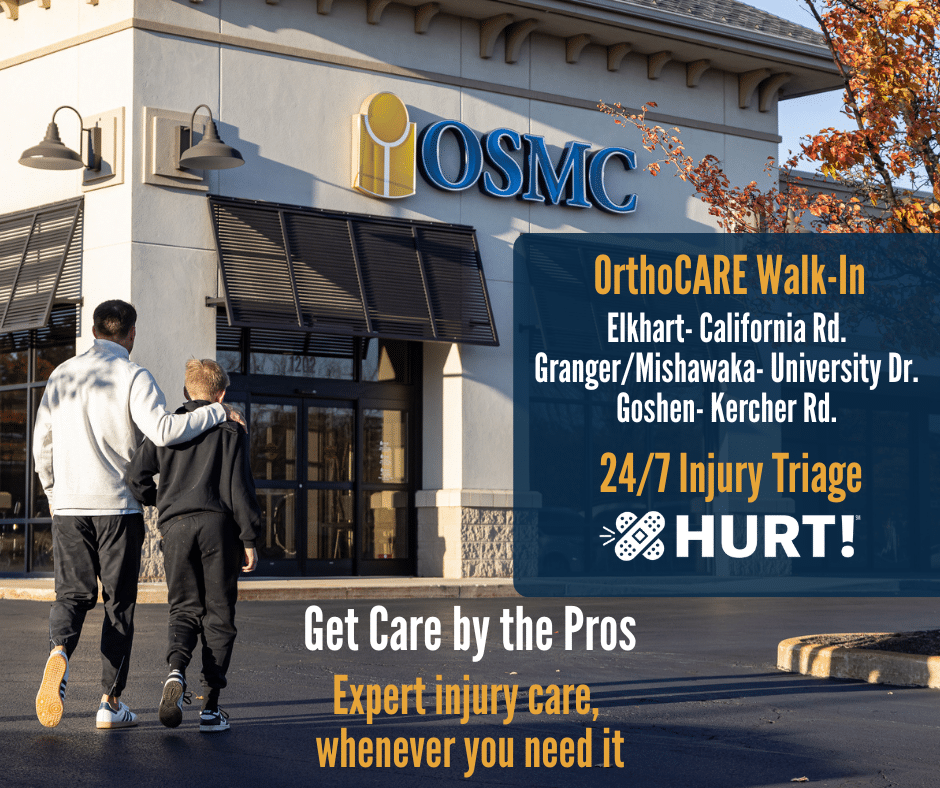
Hand pain can occur when you least expect it, impacting your sleep and daily life. At OSMC, we understand how debilitating hand pain can be, and we’re here to help you find relief. Here’s what you need to know about hand pain and how to address it.
Common Causes of Hand Pain
Hand pain can result from several causes, from temporary discomfort to chronic conditions. Understanding these causes is the first step toward effective treatment.
Carpal Tunnel Syndrome: Carpal Tunnel Syndrome occurs when the median nerve, which runs through the wrist, becomes compressed. It often leads to numbness, tingling, and pain in the hand and fingers, particularly the thumb, index, and middle fingers.
Arthritis: Both osteoarthritis and rheumatoid arthritis can cause pain, swelling, and stiffness in the hands, particularly in the joints. Arthritis can make simple movements difficult and worsen over time without proper treatment.
Tendonitis: Overuse or repetitive motions, such as typing or gripping tools, can lead to tendon inflammation in the hands, causing pain and limited mobility.
Trigger Finger: Trigger Finger or stenosing tenosynovitis occurs when the tendons that control finger movement become inflamed, making it difficult to straighten the finger. It may feel like your finger is “stuck” or locked in place.
Injuries: Sprains, fractures, or cuts can lead to acute pain in the hand, especially on-the-job injuries. Even minor injuries can cause long-term discomfort if not treated promptly.
Nerve Damage: Conditions such as diabetic neuropathy or direct trauma to the nerves can cause pain, tingling, or loss of sensation in the hand.
How do I Relieve My Hand Pain?
If you are experiencing hand pain, taking the right steps can help alleviate discomfort and prevent further complications. Limit repetitive motions and avoid activities that worsen your hand pain. Using ergonomic tools and adjusting your workspace can reduce stress on your hands and wrists.
Applying ice packs can help reduce swelling and inflammation, particularly after an injury or flare-up of tendonitis. Heat therapy can soothe stiff joints and muscles, providing relief for conditions like arthritis.
Nonsteroidal anti-inflammatory drugs (NSAIDs), such as ibuprofen, can help manage pain and inflammation, but these should only be used as a temporary measure.
Gentle stretching exercises can improve flexibility and reduce stiffness. For example, making a fist and then slowly opening your hand or gently bending your fingers can enhance mobility. Strengthening exercises can also be beneficial but should be performed under the guidance of a healthcare professional. Our experienced physical therapists can help you find relief from hand pain.
When to See An OSMC Orthopedist For Hand Pain
Persistent or severe hand pain may signal a more serious issue that requires professional attention. You should see a specialist if:
- The pain lasts for more than a few weeks.
- You experience numbness or tingling in your fingers.
- Your hand feels weak, or you are unable to perform everyday tasks.
- There is swelling redness, or visible deformity.
At OSMC, we offer advanced diagnostics and a wide range of treatment options to address hand pain, from non-invasive therapies to surgical interventions when necessary. Your hand pain could be caused by underlying conditions such as rheumatoid arthritis, which will require a diagnosis and treatment.
Hand Pain Specialist at OSMC
Hand pain can disrupt your life. Whether your symptoms are mild or severe, seeking prompt care can significantly improve your recovery. At OSMC, we’re committed to helping you regain full function and comfort in your hands.
Contact us today to schedule an appointment with one of our specialists or visit us at our walk-in orthopedic clinics. Visit OSMC.com to learn more about our comprehensive hand care services and take the first step toward relief.



